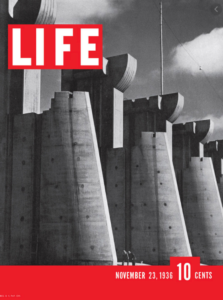Thu, 18 March 2021
SHOW NOTES KEY IDEAS: Today's episode is a profile of a 6th generation farmer. Mark Kannmacher's farming roots go all the way back to a farm located on the French and German border. After immigration to the United States, the tradition transferred to Illinois. Today, Mark is keeping the legacy alive, and he has found a way to farm full-time and hopes to have his wife join him soon! Mark, like so many farmers, has stories of long hours and little sleep. His are quite incredible though. When he was trying to transition to farming full-time but still working off the farm as a teacher he found himself getting 1-2 hours of sleep per day during certain times of the year. And, he was getting this sleep on his lunch break or during his prep period at school! In this episode Mark will discuss how he made the transition, and how he used a specialty form of livestock for his area, turkeys, to help him generate additional revenue on his farm. Also, he discusses how he uses niches and diversification to be sustainable as a business. Mark, his father, and his grandfather have all used various entrepreneurial ventures along the way to create income that would support the farm. This has all led to Mark being the first of all of them to farm exclusively with no off-farm job. ADVICE FROM MARK: PASSION: Mark believes you must really have a passion for farming to make it work. This passion should naturally lead you to learn all the aspects of the farming business backward and forwards. BACKUP: Mark suggests having a backup plan, perhaps several. He cites his turkey barns. If his contract for raising turkeys falls through, he has already considered other ways to make revenue with that infrastructure. THE WORST: Mark also suggests that you decide that on the very worst day you ever have farming that you will still be convinced that this is the only job that you truly want. BEST BUSINESS ADVICE MARK HAS EVER RECEIVED: "Always have a backup plan" which was given to him by Jim Bolin in the oil service industry. PERSONAL HABIT: Following God's word and guidance on a daily basis. CONTACT INFORMATION: Facebook Page: LINK Telephone Number: (217) 232-1052 Email: kannmacherfarm@gmail.com
Direct download: OFI_1022__Making_The_Transition_To_Full-Time_Farming_For_Husband_And_Wife___Replay_with_Mark_Kannmacher___Kannmacher_Farm.mp3
Category:farming -- posted at: 12:30am MDT |
Fri, 12 March 2021
SHOW NOTES When Autumn and I first bought our farm, and well before I ever imagined having my own podcast, I was listening to whatever agricultural content I could get my hands on. There were long days out on the tractor, disking and trying to get our land into some sort of shape that we could irrigate and grow pasture. Technology has advanced pretty rapidly since then. So, back in those days, I had to download podcasts onto my phone prior to listening to them, and I needed wifi to do it. There was no using cellular data, and there were no streaming podcasts like on Spotify. So, you had to be really serious about wanting to listen to something because you had to go get it in advance. One of the shows that I listened to back then was the "Zimmcast", an agricultural show hosted and produced by Chuck and Cindy Zimmerman. These folks were podcasting about agriculture way before it was cool, and they continue to do so today. After we announced that we had published our 1,000th episode of the Off-Farm Income Podcast, I received a note of congratulations from Chuck. It seems that there are only 2 or three agricultural podcasts to reach this number, and the Zimmcast is definitely one of them. In corresponding with Chuck we decided that it would be a good idea to have a conversation about agricultural podcasting, record it and release it to our respective listeners. Today's episode is the result of that conversation, and I hope you enjoy it. Connect with Chuck Zimmerman: Website: The Zimm Cast Website: AgWired Twitter: @Agriblogger
Direct download: OFI_1017__A_Conversation_Among_Agricultural_Podcasters___Chuck_Zimmerman___ZimmCast.mp3
Category:farming -- posted at: 12:30am MDT |
Thu, 11 March 2021
SHOW NOTES KEY IDEAS: There is a multitude of obstacles to entering farming, growing your farm, and becoming profitable. And, there is an old model of making it work, that carries some pretty risks - debt. Using debt to purchase your farm, purchase equipment, cover operating costs, or procure livestock is the norm in farming. The problem with debt is that you have to service it, and it can control you as well as the decisions you make on your farm. So, what are the alternatives? That is what we strive to offer on this show, week after week. We choose to interview guests who have small businesses that we believe might work for you and become a key component of your overall strategy to make it as a farmer. Occasionally I run across an opportunity that is outside the parameters that we have defined on the Off-Farm Income Podcast. When one of these opportunities looks like it could really help you to succeed in farming, we want to bring it to you, regardless of our focus on entrepreneurship. Even greater than teaching you about the opportunities that entrepreneurship offers to you is our goal to see you be able to farm for a living. Today's episode is one of those moments. Our guest today, Austin Maness of Harvest Returns, talks with us about alternatives to debt and another funding source through investment. Austin has a farming background and a really interesting path that has led him to become the chief operating officer of Harvest Returns. In his current role, Austin looks for opportunities to match investors with farmers who need funding. It is a very interesting concept both for the farmer as well as the investor. While this interview was more focused on benefits and risks to farmers, we touch on the investor side of things as well.
There was a recurring theme in this interview, and that is that every project of this type is different. In some cases, Austin deals with several investors with a few thousand dollars to invest, and they want to be involved in agriculture. In others, he is dealing with investors with hundreds of thousands of dollars, and they have their eye on one segment of farming. It was clear through the interview that the opportunities for farmers as well as investors are kind of limited only by their imagination with this model. Harvest Returns is a one of its kind, first in the field company that has identified this strategy of funding farms. Towards the end of our interview, Austin said something that really stuck with me. To paraphrase he said, "perhaps there is a person that comes from farming but is stuck in a cubicle and wants to go back. We can help that person get started". If you are going to shift to this lifestyle, you need all the tools you can have in your financial tool belt. It will be very worthwhile for you to learn about this one today. CONTACT INFORMATION: Website: https://www.harvestreturns.com/ Facebook: https://www.facebook.com/harvestreturns Instagram: https://www.instagram.com/harvestreturns/ Twitter: https://twitter.com/HarvestReturns Linkedin: https://www.linkedin.com/company/harvest-returns/
Direct download: OFI_1016__An_Alternative_To_Debt_For_Funding_Your_Farm___Replay_with_Austin_Maness___Harvest_Returns.mp3
Category:farming -- posted at: 12:30am MDT |
Fri, 5 March 2021
SHOW NOTESOn the Off-Farm Income Podcast, I like to talk about how people in agriculture can use their problem-solving abilities, mechanical aptitude, and farm equipment to create a small business. Ultimately, I think that too many farmers turn to the rigid, inflexible work schedule of an employer when they could be using everything they already have at their disposal to create a much more flexible and lucrative small business. But, this is just one side of the coin. This philosophy only looks at people who are already farming, who have already purchased equipment, and who have already developed certain skills and aptitudes that go with farming that can be used to serve others. What about the person who wants to transform their life to farming, who has got a degree and several years of work experience in a field that doesn't obviously translate to an agriculturally related business? Today's guest, Wil Crombie, answers that question. Wil grew up around his family's farm in Minnesota, doing some farm work with his grandfather, like cutting hay. But after high school, Wil decided to take his life in a different direction and pursued a career in film production. He got a degree in this and went into this career focusing on the music industry. Some years later, Wil had, shall we will say, a moment. He realized that he wanted to return to his family's farm in Minnesota and create an awesome organic and regenerative farming operation. However, all of his experience, education, and network contacts were in the film production and music industry. Wil had this realization while he was in Hawaii. Moving from a life in the music industry and working in Hawaii, to a life farming in Minnesota couldn't be a bigger change. What was Wil to do with this hard-earned tool kit of skills and knowledge that he had put together through his film career? Should he just abandon it, and start over from scratch? You have probably already guessed, but that is not what he did. Wil returned to the farm. He and his wife started the operation that he had envisioned, and they, like 90% of all farmers, needed off-farm income. Will used his skills to obtain, what he calls "W-2 Work" or a job, at a local non-profit. At the same time, he was scanning for film-making opportunities in the world of agriculture. Finally one came up....in Africa. Wil took this project and filmed an agricultural project on what was once referred to as "the Dark Continent". The project was met with success, and his reputation in this space grew. This propelled him and Man Alone Media to be a much more significant part of his off-farm income portfolio. Since then Wil has been able to leverage his "tool kit" and his growing reputation into more and more work. But, money is not the only form of payment that he is receiving. Wil is frequently able to choose work that will not only pay him but will educate him on a concept of agriculture that will help him on his farm in Minnesota. Many of you have a skill set that you don't quite know how to transition to farming right now. But as you look deeper into that skill set, and you identify what it is you really do, not just what it says on paper, you can do the same as Wil! Connect with Wil Crombie & Man Alone Media: Website: https://www.manalone.media/ Facebook: https://www.facebook.com/manalone.media Instagram: https://www.instagram.com/manalone.media/ Email: info@manalone.media
Direct download: OFI_1011__How_To_Take_Any_Skill_And_Use_It_In_Agriculture___Wil_Crombie___Man_Alone_Media.mp3
Category:farming -- posted at: 12:30am MDT |
Thu, 4 March 2021
SHOW NOTES: Today we get to profile a very innovative and hard-working farmer. At the same time, we get to tell a story that we have told before, and we get to show you a great model for creating a sustainable farm as well as creating off-farm income. Allen Deutz is the owner of a farm purchased by his great-grandfather in 1920 in southwestern Minnesota. In just one more year this will be a century farm. Like so many generational farmers Allen was faced with creating a business model that would allow him to continue to farm the property and have it available for the next generation. Allen first tried the dairy business, as his father had operated this farm as dairy. However, even as he was excelling in his performance as a dairy farmer, the economics of the dairy industry pushed him right out at his small scale. So, Allen transitioned to raising some commodities - corn and soybeans, raising grass-fed beef, raising all-natural pork, and raising free-range meat chickens. It is in this diversity that Allen has been able to create a system that is regenerative and hedges against low prices in any one area. Allen recently purchased a no-till drill for planting on his own property. He realized two things. First, when he was not planting that piece of equipment was just sitting there, not making any money. Second, because of the wet spring, his region had been having many farmers who had not been able to plant and could use his help planting in cover crops for the rest of the season. Thus, a form of off-farm income was born. PRIDE OF OWNERSHIP: Allen suggests that you do not borrow money to buy equipment just so you can own it. Research whether or not it makes you money to own the equipment vs. hiring the work done or renting the equipment. EASY: Renting is easy, and if you do this for a season it can help you figure out whether or not purchasing the same equipment makes sense. PERSONAL HABIT: Allen is very good about penciling out expenses and whether or not he is making money on any given aspect of his farm. This has led him to another form of off-farm income in the off-season where he does this for other farmers.
CONTACT INFORMATION: Website: LINK Facebook: LINK Email: deutzheritagefarm@gmail.com
Direct download: OFI_1010__Diversification_As_A_Hedge_And_Using_Equipment_You_Already_Own_To_Create_Off-Farm_Income___Replay_with_Allen_Deutz___Deutz_Heritage_Farm.mp3
Category:farming -- posted at: 12:30am MDT |
Fri, 26 February 2021
SHOW NOTESIf you have been listening to the Off-Farm Income Podcast for a while then you have heard a lot of stories about agricultural entrepreneurship, you have heard a lot of stories about FFA students and you have heard a lot of stories about where those two paths intersect. Today, we are very lucky to be able to give you the "after picture". We are able to bring things full circle and show you how it all comes back around. Our guest today is Caleb Green, and he has a great story. Caleb grew up in northern Wyoming around farmers and farming with his dad. Caleb was also an FFA member, and when it came time to select a supervised agricultural experience he decided to start a custom hay business. He named it "Evergreen Custom Haying". When Caleb chose to start this business he looked around at what was offered in his community, and he found a niche haying on smaller properties and putting up small, square bales for horse owners and people who needed them. Soon, he was growing his business, expanding his customer base, and purchasing more equipment. Caleb's services even included irrigating for his customers when that was necessary. After graduation, Caleb went on to college and started studying ag. All through this time, he kept his haying business going. But, like so many FFA students, Caleb had been inspired by his ag teachers and he was focused on getting his degree and returning to the ag classroom, this time as an FFA advisor. Caleb is now 25 years old, and that "return to the classroom" moment came in July of 2020 when he was hired as the ag teacher at Burns High School, near Cheyenne. He started on July 1, going out and meeting his students at their homes while checking in on their projects. Soon, it was time for the county fair, followed immediately by the state fair and then right into the first day of school. The writing is definitely on the wall for Evergreen Custom Haying, looking back on this summer schedule. Caleb's FFA chapter needs him at the exact same time that most of the haying in his part of Wyoming gets done. Caleb has tinges of emotion when he thinks about not running his custom haying business any longer. He misses being out there in the open, cutting hay, and doing things on his own terms. However, his excitement about being in the classroom is contagious. Because of the requirement for supervised agricultural experience, Caleb started a business and learned about entrepreneurship. Today, Caleb is the person at the head of the agricultural classroom, and he has the opportunity to take what he learned by running his own business and teach it to dozens of students. And, as the years go by that number will turn into hundreds and eventually thousands. Entrepreneurship is desperately needed in our rural communities for a number of reasons, and that is why I am so eager to profile entrepreneurship in the FFA. Ten years ago Caleb got introduced to the concept by his then FFA advisor. Today, he is introducing multitudes to the concept with the benefit of his experience. Coming full circle, Caleb is giving students the inspiration, permission, and knowledge to be able to work in agriculture, create jobs in rural communities and avoid being forced to move to the city for work. This is an FFA success story at its finest!
Connect with Caleb Green & Evergreen Custom Hayingat: Facebook: facebook.com/EvergreenCustomHay
Direct download: OFI_1005__Coming_Full_Circle_From_Ag_Student_To_Ag_Entrepreneur_To_Ag_Teacher___Caleb_Green___Evergreen_Custom_Haying.mp3
Category:farming -- posted at: 12:30am MDT |
Thu, 25 February 2021
KEY IDEAS: "The #1 reason that farms fail is that they fail to profit". This statement by Ted Lebow seems simple and obvious, but when you dig deeper it is actually complex and difficult to understand. Ted's company, Kitchen Table Consultants, looks at farming operations, especially those actively involved in marketing their produce, meat, and fruit, and see how business models can be a detriment to the success of the farm. Ted grew up in agriculture in Nampa, Idaho. He participated in the FFA and later studied agriculture at Cornell University. He has also started several companies, including Kitchen Table Consultants. He has seen how failing to properly assess profit can lead to not just the loss of a farm, but the loss of a lifestyle. In this episode, Ted gives several tips to farmers on how to maximize profitability and sustainability. One interesting point that he made was that farming operations that are involved in marketing should act as two different farming entities. One entity is involved in farming and the other is involved in marketing. This will help the farm to determine if they are profitable, and if not it will tell them in which aspect of their business they are failing to profit.
This episode is a bit different from normal as I was not interviewing Ted about forming his businesses. I was asking him about what he teaches and consults on to help farmers succeed. I know there will be something in here that can help you with your future success. CONTACT Ted Lebow & Kitchen Table Consultants: Website: kitchentableconsultants.com Facebook: facebook.com/kitchentableconsultants Instagram: instagram.com/kitchentableconsultants
Direct download: OFI_1004__How_To_Make_Farms_Profitable___Replay_with_Ted_Lebow___Kitchen_Table_Consultants.mp3
Category:farming -- posted at: 12:30am MDT |
Fri, 19 February 2021
SHOW NOTESI love it when ideas spring from actual life experience and people have the courage and tenacity to follow through on making those ideas a reality. That is absolutely the case on today's episode, featuring the founder and creator of Ag Butler, Kevin Johansen. Kevin and his wife, Jamie, raise cattle in Lebanon, Missouri. They both grew up ranching cattle in the "Show Me State", and they continue this way of life as a couple. You may recognize Jamie's name, as she was the featured guest on episode #772 of the show when we profiled her business, Honey Creek Media, almost exactly one year ago today. Kevin has always been involved in entrepreneurial ventures. One of those was working as a freelancer, clipping cattle for people in preparation for shows and sales. During his time doing this work, he noticed how antiquated and awkward the process was for finding help. Kevin's particular skill is just one of the many different skill areas that farmers and ranchers need help with at certain times of the year. And Kevin noticed that when people discovered that their workload rose to the level of needing additional help for a certain project or time of the year, that finding the correct people was ominous. Kevin described how farmers and ranchers might have a name stored in a phone or on a piece of paper somewhere. If they could find that name and give them a call the number might not be good any longer, the person may no longer be freelancing or they might have already agreed to work for somebody else because everyone tends to have the same needs at the same time when it comes to clipping and fitting for livestock shows. For the farmer or rancher who needs help, this creates a real problem. Their entire network of freelancers that could help them was limited to who they had used before. If these people were unavailable they would have to start over from scratch on finding someone. This would be done by calling around and asking for referrals. And, these referrals might have first-hand knowledge of the person's skills and reliability, but possibly not. So, it was a gamble as to whether or not this person was going to work out well for the farmer's needs. Kevin decided to try and figure out a way to solve this problem. After giving it deep thought, he came up with the idea of Ag Butler. Ag Butler is both an app and a website that a farmer and a freelance laborer can sign up for. With the information that they input, the right two people can get matched up. Also, the farmers and ranchers that hire these individuals can rate them, so that farmers and ranchers in the future have less of a gamble when hiring. There are real-world testimonials on the app to help farmers and ranchers determine who is correct for them. Kevin launched Ag Butler in August of 2020, and it has been working well. They have steadily had more and more people signing up for the service and it is already helping farmers and ranchers who need extra help as well as freelancers looking to work in agriculture. I believe that there is a significant difference in the quality of a service or product that is determined by the experiences of the founder or those people brought in to help develop it as compared to somebody with an idea who has never worked in the field. Kevin has seen this problem from both sides, and that has made him uniquely qualified to create this product and solve this problem. And, I think he has done it! Connect with Ag Butler, and Kevin Johansen at: Website: agbutlerapp.org Facebook: facebook.com/AgButlerApp Instagram: @agbutlerapp Twitter: @AgButlerApp Email: support@agbutlerapp.org
Direct download: OFI_999__An_Agricultural_Match_Maker_Connecting_Farmers__Ranchers_With_High_Quality_Labor___Kevin_Johansen___Ag_Butler.mp3
Category:farming -- posted at: 12:30am MDT |
Thu, 18 February 2021
Our guest today is more proof of an emerging trend in production agriculture. Young farmers are recognizing both the need for off-farm income and that entrepreneurship is the best way for them to produce this. Mark Hewitt and his wife have their own small farm and are leasing more ground to build their lives in agriculture. However, they are not to the point that they are self-sufficient yet. So, Mark needs to bring in money from off of the farm. He has chosen entrepreneurship to do this because it allows him flexibility in his schedule to manage his own farm as effectively as possible. Also, it offers an opportunity for greater earning potential than a job, which could speed up his pathway to full-time farming. Last, but certainly not least, it allows Mark to arrange his schedule to maximize time with his family. If you want to be a full-time farmer in production agriculture, this is a great episode for you to listen to. It also is more proof of this emerging trend among young, production agriculture farmers. ADVICE FROM MARK: RESERVES: Mark definitely suggests prioritizing having some capital reserves. You never know when an issue will come up in which you need money to run your business or an opportunity will arise that you can only take advantage of if you have the money. PERSONAL HABIT THAT MAKES MARK SUCCESSFUL: CONVERSATION: Mark describes himself as a conversationalist. He loves to talk about farming, and he went with his strength when it came to choosing a business. Now he gets to talk farming and turn that into supplemental income. BEST BUSINESS ADVICE EVER GIVEN TO MARK: "Don't Get Discouraged By The Word 'No'". If you are going to work in any type of sales you will have to get used to hearing this. And, you will have to keep trying until you hear "yes". CONTACT INFORMATION AND LINKS: Mark's Email Address: mark@hewittprecisioninsights.com Hewitt Precision Insights Website: LINK Facebook: Hewitt Precision Insights | Facebook Twitter: Hewitt Precision (@hewittprecision) / Twitter Instagram: Hewitt Precision Insights (@hewittprecision) • Instagram photos and videos
Direct download: OFI_998__How_To_Build_A_Sustainable_Family_Farm_Business___Replay_with_Mark_Hewitt___Hewitt_Precision_Insight.mp3
Category:farming -- posted at: 12:30am MDT |
Fri, 12 February 2021
I don't know if you have noticed, but his show is about non-conformists and people who look at the world a different way. All of us fit that definition a little bit by the mere fact that we want to farm and only 2% of our population is in that career field. But what about that person that says "why do I have to do it that way"? Today's guest, Ben Rykerd, is that person. Ben is now 29 years old. He describes himself as having a "travel bug" and he has known this since he was a kid. So, as high school was coming to a close Ben didn't just take the next prescribed step in the journey, he stopped and asked himself what type of life he wanted to have. Ben also didn't look at things through the lens of an "either/or" mentality. He looked at "and" solutions. He knew that he wanted to travel, and he knew that he both had to and wanted to work. But, he never made the statement "I want to travel, but I can't because I have to work". Ben found a way to say "I want to travel, and I can because of my work". Ben first looked into being a truck driver, because that would get him out on the road and allow him to see the U.S. However, he was not going to be eligible for a license that would allow him to drive outside of his home state until he was 21. So, he started looking at alternatives. What he ended up finding was working on a custom harvesting crew. He found an operation in Kansas that was hiring, and he knew that working there would take him all throughout the Grain Belt and allow him to see a lot of the United States. After one email, he was hired! That crew, which Ben worked with for four years, was the opening of an exciting adventure. On this crew, he had coworkers from Australia and New Zealand, and they told him all about the farm work available to him down there. Before he knew it, he was working on a dairy in New Zealand, learning something totally new about agriculture. Soon, he found himself in the vast interior of Australia on a custom harvest crew. He has also worked in Canada and continues to work in the U.S., now on a custom farming crew. Ben has his eyes set on Ireland, Finland, and Germany as well.
In this episode, Ben talks about how he got started, the Visa he obtained to do this, how to extend your time in Australia, how much money you need to get yourself started, and much more! Connect with Ben Rykard at: Instagram: @Dirtbag_Ag Email: BenRykard@gmail.com
Direct download: OFI_993__How_To_Travel_Internationally_Through_Farming___Ben_Rykerd___World_Traveler_And_Farmer.mp3
Category:farming -- posted at: 12:30am MDT |
Fri, 5 February 2021
SHOW NOTESAbout two months ago I looked down at my phone and saw that there was a voice mail from my father in law on there. I listened to the message, and to his attempt to live in my world of technology, even though that was so foreign to him. He told me that he had just read an article about a guy from Florida that was "making a website" like me and that I should listen. He said that the show was about cattle ranching in Florida and that he had never realized that the first cattle in America were brought to Florida in 1521. He said that the show was named "Between The Beaches". I've got a small, Bluetooth speaker made by JBL called the JBL Clip that I use twice per day. In the mornings and evenings when I am doing chores I listen to podcasts on it. I clip it onto the gear shift of my Polaris Ranger, and while I am driving around the farm feeding cows and goats I can learn something. So, the night that I received this voice mail I decided to give "Between The Beaches" a try. I have been hooked on this show ever since. I like to learn, but there is so much information out there that I will never be able to take it all in or even decide what to take in, in a lifetime. Without "Between The Beaches" I would never have known or even tried to learn the cattle ranching history of Florida. There is a lot of fascinating information in this show that has kept me coming back for another episode. The host, Brad Phares, is our guest on today's show. Brad has constructed a very unique podcast in that he does two things very well. First, he educates people on the history of cattle ranching in Florida. There is 500 years' worth of it after all. Second, he talks about why cattle ranching is so important to the State Of Florida in modern times. With 1,000 people moving to Florida every day, he makes a strong case for why cattle ranching is essential. I am thrilled to bring Brad on as a guest today, and I hope you will all put him on your playlist. You will really enjoy getting to know all about cattle ranching in Florida! Follow Brad & Cow Hunters Unlimited Here: Website: http://www.cowhuntersunlimited.com/ Facebook: https://www.facebook.com/CowhuntersUnlimited Twitter: https://twitter.com/WBPhares Instagram: https://www.instagram.com/cowhunters.unlimited/ Between The Beaches Podcast: http://www.cowhuntersunlimited.com/between-the-beaches-podcast
Direct download: OFI_987__Fighting_For_The_Way_Of_Life_You_Love___Brad_Phares___Between_The_Beaches_Podcast_And_Cow_Hunters_Unlimited.mp3
Category:farming -- posted at: 12:30am MDT |
Thu, 4 February 2021
SHOW NOTESThe Current Stage Of My Life And Business Well, here we are, just a week away from Thanksgiving with 2019 bearing down on us soon. What are your goals for the upcoming year? What stage of business development or production will you be in during 2019? Perhaps you are just starting your plan to become an entrepreneur. Or maybe you have started your business and are growing it while you continue to work at your full-time, "day job". Maybe you have even made the transition to full-time entrepreneurship and are looking for other revenue streams or are developing your farming operation. I have been through all of these stages. I want to share the stage I find myself in now. This is probably the most difficult stage to share with you. It is not because something bad has happened or because I am ashamed of where I am at. I think it has to do with my raising. Talking about this stage feels a bit like bragging. And certainly, nobody in my family has ever done anything like what I now do for a living. So, for me to talk about this stage I have to remind myself what this podcast is all about. My purpose here is to be a cheerleader for you, to be the person who keeps moving forward on this path so you can follow behind, and to be the person who takes the risks and leaps of faith to show you that it is possible. And of course, in the worst-case scenario to be the person who fails and warns you ahead of time so you don't make the same mistake that I already have. My purpose is also to be an inspiration. I know how much the people I listened to, read, and watched inspired me when I was first beginning my journey. I remember hearing about how they lived their lives, and wondering if it could ever be possible for me to live that life someday. Now I find myself doing that, and I have to force myself to think back to when I wondered if it would ever be possible so I can see the transition that has taken place. So, the stage I am entering into now is the one that I dreamed about way back in 2009 when I first really started thinking about what I wanted my life to look like. For those of you who have been listening for some time, you know that having a podcast was not part of that vision back then. The podcast is one of the pivots I made along the way. In 2009 I just had a seed of an idea. I had a vision of a better way for me to live my life. That little seed opened a pandora's box for me. I had no idea how to get to that place, but I knew I wanted to be there. This is what my life looks like today:
I have systems in place for all of these revenue sources which makes them very easy to manage and maintain. What this means for my lifestyle is that it is extremely flexible, stress-free, and less demanding than anything else I have ever done. Except for the farm, I do not have a significant hourly commitment each week to keep up with those streams of revenue. I call agriculture "the ultimate lifestyle business" and I prove it every year. By far, the farm provides me the lowest hourly wage of any of these streams of revenue. However, I am able to be on my farm 100% of the time now, and being able to do that is the reason all the other streams of revenue exist. When I look into the future, and I see the potential for growth in these revenue streams I am filled with optimism. In the area that we live, real estate values and rent prices are appreciating rapidly, which has a direct impact on the value we receive from our two rental houses. We continue to grow this show, and as a result, offer more value to our advertisers making that more and more valuable. We had a great reception for the online course at the National FFA Convention this year, and the possibilities there are endless. Production of the Bulkloads Podcast is going very well, and there is room to add more production clients. D&B Supply is doing great, and the radio show I am hosting for them is working just like I had imagined it when I first proposed the idea. My life today is all about cattle, pigs, goats, and hay. And it is almost completely on my terms. Without having a farm to inherit, we have been able to find a path to being on our farm full-time, not using debt, and being financially secure. And I have a ton of time to focus on farming! This is the life that I was dreaming about. And when this dream first popped into my head it seemed impossible. But I am standing here today ready and able to show all of you that it was not impossible. It is very possible, and it is not lost on me that I get to live it. I am going to do another solo episode next week to help you down this path even further. We all need a lot of help along the way from mentors and coaches. Most of us cannot afford to hire those people into our lives during those initial stages of growth. What I did was listen to a lot of podcasts, read a lot of books and listen to a lot of audiobooks. Next week I am going to give you my list of all the books that I try to either read or listen to (mostly listen to) every year for continuing motivation and
Direct download: OFI_986__Follow_Me_To_The_Life_And_Farm_You_Are_Dreaming_About___Revisit_a_Solo_Episode_With_Matt_Brechwald.mp3
Category:farming -- posted at: 12:30am MDT |
Fri, 29 January 2021
SHOW NOTESI have repeatedly said that you will see business opportunities all around you once you become an entrepreneur. It is really true. Once you start a business, you don't have trouble thinking of new business ideas; you have trouble staying focused on just one. Something in our perspectives changes once we enter into the arena of entrepreneurship. There is a good chance that if you listen to the Off-Farm Income Podcast, you could be surrounded by business opportunities in your everyday life and not even realize this. Many of my listeners are parents who are taking their kids to stock shows several times per year to exhibit their animals. So, if you are spending all of your time at livestock shows thinking that you can't start a side business or even a full-time business because of this commitment, are you correct? Back in 2016, I featured an interview with Dolly Denson, "The Fit Stock Show Mom." She was a person who found herself in this position and came up with a business idea that would serve the other parents at the stock shows. In today's episode, I am proud to feature another group of people who have recognized the opportunities at stock shows and are making it happen for themselves. In today's episode, I speak with the owner/operators of "The Stock Market Boutique." I will be having the co-owners, Olivia Warren and Kyle Blaydes, on the show. Olivia's daughter, Tori Warren, will also be joining us to talk about being their primary model for the clothing they sell and her role in social media marketing. Along with a group of people, Olivia and Kyle recognized that there was a niche to be filled at stock shows, selling clothing to exhibitors that they would like to wear around the shows and in the arena. That is when this business was born. However, over time the other people involved in the business dropped off, and ultimately it became just Olivia and Kyle, with Tori playing a big supporting role. Today "The Stock Market Boutique" is traveling to different livestock shows and larger events like the National Finals Rodeo, selling their fashions and meeting people in agriculture. Tori brings the perspective of a lifelong exhibitor, Olivia has the perspective of a former 4H member and the parent of an exhibitor, and Kyle brings the perspective of a full-time farmer. This combination is working very well for them. Even though Covid, with the cancellation of so many shows, they have maintained their business. They are looking and different revenue models in addition to clothing and are poised to really grown once Covid is over. You are going to enjoy getting to know this great group of entrepreneurs. Connect with The Stock Market Boutique: Website: thestockmarketboutique.com Facebook: facebook.com/thestockmarketboutique Instagram: instagram.com/thestockmarketboutique Email: tsmoffices@gmail.com
Direct download: OFI_981__Five_Star_Business_Opportunities_At_Stock_Shows___The_Stock_Market_Boutique.mp3
Category:farming -- posted at: 12:30am MDT |
Thu, 28 January 2021
SHOW NOTESKEY IDEAS:However, you decided to get into business for yourself there is one constant; you must make the leap from your full-time job to your new business when the time is correct. For most of this audience is especially true because so many of us have a lot at risk. If you are in your mid to late '20s without a 401K, a family, a house, etc. then making a big leap is a lot less risky. But for the rest of us, we really need to mitigate this risk. Our guest today, Ray Miller, does not take this lightly. Even as his microbe business grows and spreads across the nation, he continues with his previous career on a less frequent note. He does not want to let his license expire, thus burning that bridge to an income if he were ever to need it. So, he is content taking it slow and making the leap when the timing is right. I normally follow Dan Miller's lead and suggest making the leap when your new enterprise is producing 50% of your full-time income as a side hustle. However, if you have the ability to do what Ray is doing, it is a great idea. That is, just shifting percentages of income generation gradually until the new enterprise takes over for the previous one. Ray followed an interesting path to his own business, much as our guest in episode #468 did by becoming a distributor of Rogue Equipment. Ray found a great product and realized that there was a need for it, but people around the country did not know about it. He made it his mission to rectify this and became a distributor. He has seen great results and cautions us that you had better believe in your product before you decide to deliver it to the rest of the nation. ADVICE FROM RAY: SLOWLY: Make your transition from your full-time job slow and gradual. Just because you have a great idea does not mean that you should slaughter the goose that is laying the golden eggs. PERSON: As much as you can, meet people in person and shake their hand. The internet and social media are great tools and need to be used, but they are not a substitute for eye contact. NEEDS: When you are trying to find a business to start, identify what it is you want that business to do for you. Then make sure whatever you pick is in line with that. BEST BUSINESS ADVICE RAY HAS RECEIVED: "If You Don't Believe In What You Are Doing, Nobody Else Is Going To" PERSONAL HABIT THAT HELPS RAY SUCCEED: PEOPLE: Ray loves to meet and get to know new people. This helps him to succeed.
Direct download: OFI_980__The_Transition_From_Your_Career_To_Your_Own_Business___Replay_with_Ray_Miller___Rocking_RM_Microbe_Solutions.mp3
Category:farming -- posted at: 12:30am MDT |
Fri, 22 January 2021
SHOW NOTESThere is a debate that has been arising over the past decade or so about whether or not paying for a college education is a wise investment. This debate has continued to grow as valuable skills are being taught more and moreover the internet. As the advancement of technology moves forward at a more rapid pace, the people with the most up to date skill sets are not coming out of colleges but are coming offline. When you throw out professions that require a college degree; such as a doctor, lawyer, engineer, etc. you really start to see a devaluation of a college degree. If you focus specifically on entrepreneurship type skills, the value drops even lower. Part of the reason for this is the rapid pace of increased tuition costs that have outpaced inflation for years now. Today's guest, Kyle Stockdale, is a married, 25-year-old dairy farmer from Ontario, Canada. At the beginning of our interview, Kyle told me that he had not attended college, and then he made the statement "might as well go to work and make money rather than go to school and spend money". There is financial wisdom in this statement. Of course, Kyle did not incur the expenses of college, and during the four years that he would have been making minimal income as a student, he was able to make significantly more money, giving him the opportunity to start investing and growing his net worth if he wished. That was how we started the interview. But by the end of the interview, I was recognizing something completely different about Kyle that was very compelling in light of him choosing to skip college. Kyle knows marketing, and when he starts talking about marketing and growing his business he is clearly very educated. So, without college, how did Kyle obtain all of this knowledge? Kyle is one of the millions of people who have followed a relatively simple formula. He found a niche that he was passionate about and that he could start a business within. Then he found mentors and teachers online that would help him develop the skill sets he would need to create a successful business.
However, no matter how good you are at your core skill, your business will not flourish if nobody knows about you. So, you must market. This is where Kyle went to work finding online mentors who would help him grow, and this is how he became a marketing expert. It is clear from listening to Kyle that as passionate he is about his core business, he is equally or more passionate about marketing. I can say first hand that it is surprising what passions you expose in yourself when you start your own business. Kyle discovered something about himself by building this business, and he can now talk about marketing like the most polished of college graduates. Connect with Kyle Stockdale and KY Vision Sharpening & Clipper Repair: Facebook: https://www.facebook.com/KyVisionblades Instagram: https://www.instagram.com/kyvisionblades/ Email: kyle_ky-vision@hotmail.com
Direct download: OFI_975__Unlimited_Marketing_Ability_With_No_College___Kyle_Stockdale___KY_Vision_Sharpening__Clipper_Repair.mp3
Category:farming -- posted at: 12:30am MDT |
Fri, 15 January 2021
SHOW NOTESThere are two fundamental issues that have always plagued me when it comes to farming. First, what do we do about urban sprawl and disappearing farm ground? Second, how can a person expect to start a successful farm and be a full-time farmer with land, input, and equipment costs being so high? So, when I was contacted by The Conservation Fund asking to be on the show and talk about their answers to these questions, I jumped at the chance. The folks at The Conservation Fund are pro-agriculture, and they are particularly fond of locally produced farm goods that follow their model of sustainability. They also abhor disappearing farm ground. So, they are working to increase locally produced goods while slowing urban sprawl. Right now they are doing this in the 30 counties, metro area of Atlanta, Georgia as a pilot project. But the prospects are very good for expansion. In this episode, I speak with Stacy Funderburke, who is heading up the "Working Farms Fund" on behalf of The Conservation Fund in the Atlanta metro area. This program aims to pay farmers the actual market cost for their farms. Once purchased, they place the farms into an agricultural easement so that they will be farmed in perpetuity. And this is when the fun really starts. Once these two things have taken place they match up the particular farm with an experienced farmer, who has been leasing ground or working as an employee and is looking to start their own enterprise. Because the land has been placed in an agricultural easement the price is not driven up by demand from developers. This gives the new farmer a reasonable shot at purchasing the land. To begin the new farmer enters into a lease on the farm ground with an option to buy. The Conservation Fund helps the new farmer with obtaining resources, sharing equipment, and developing markets. In exchange, the City Of Atlanta and its surrounding metro area have another local producer who can bring locally grown food to market in that area. It is a win/win/win situation. You don't need to be from Georgia to participate in this and be selected as one of the new farmers. We will tell you all about this in today's episode. Connect with Stacy Funderburke and The Conservation Fund: Website: conservationfund.org Facebook: facebook.com/theconservationfund Instagram: instagram.com/theconservationfund
Direct download: OFI_969__The_Answer_To_Urban_Sprawl_And_The_Question__How_Can_I_Start_A_Farm_____Stacy_Funderburke___The_Conservation_Fund.mp3
Category:farming -- posted at: 12:30am MDT |
Thu, 14 January 2021
SHOW NOTESKEY IDEAS:Entrepreneurship is the only option If you want to farm, the further away from a major city you can get the more the land prices will reflect on their production capability. But, there will be fewer jobs available to you, likely with lower salaries. How will you produce your off-farm income? 92% of farmers in the U.S. rely on it for household income, either created by themselves or their spouse. If you are going to take a full-time job, what do you do when you need time for farm management activities?
If you are making a big transition from a city career to a rural & farming lifestyle you might have skills and/or education that is not applicable in your new hometown. If that is the case, can you use these skills to create your own business?
If you are going to keep a full-time career job in the city, what is a reasonable commute?
Don’t look at entrepreneurship as your lifestyle choice. Look at farming as your lifestyle choice and figure out a game plan that will allow you to make that happen. In this model, the production of your off-farm income no longer defines your working life. It is now the means to allow your working life. This is why I call agriculture the “ultimate lifestyle business”. Other than being an actor, artist, or musician this is the only profession where people will work a second job, just so they have a shot at doing the first. We are choosing this business of agriculture because there is such a strong, intrinsic reward for us that we are willing to make these sacrifices just for the chance to do it for a living. We are choosing this career for the lifestyle because as a brand new farmer who has to develop their operation we cannot do it for the earnings. If our career decision was solely earnings-based this would not make any sense. We could clearly make more money, in less time, with less risk and more benefits at a city job, in a subdivision house with city neighbors. CHOOSING YOUR BUSINESS When you are choosing your business try to look at things with demand in the area and nobody filling it. Or, look at a business in which you could do a better job? Or, find a business that somebody wants out of with good potential. I would refer you to episode #480 about finding a true business opportunity. Don’t get hung up on the earning capability of your business idea in its first phases. One thing I can say for sure is that as you start working for yourself you will start to see opportunities and ways to generate more revenue than you were unable to see prior to beginning. In other words, after you get started you are going to find more money. YOUR ONLY OPTION How are you going to farm well enough, that you can eventually become that full-time farmer (or most time farmer) that you want to be? As you are starting out, whether it be with livestock or crops, you need every advantage you can get. That might mean a 100% calf crop. Or that might mean a couple of bushel yield bump. One thing I learned in my two years of riding around with crop advisors was that the best farmers seemed to be the ones that were out there with their herds or crops. They were able to detect subtle changes or illness early and do something about it before it hurt their bottom line. How can you do this if you are at work all day? How do you get the time to react if you discover a problem when you’ve driven home from a long day of work? NOT AN OBLIGATION All you have to do is go onto social media to find lots of people who will tell you not to try farming. They will say many things such as:
These words, unfortunately, come from people who were just like you at one point. They had a dream of farming, and for one reason or another it did not work out. There are no guarantees here, and we could all suffer the same fate and have to give up our farm someday, I included. Farming is a business, and it may not go our way. But, we don’t want to end up discouraging others. I think that discouragement comes from years of struggling to work full-time and farm on the side. When you do that you can burn out, and pretty soon the dream fades away. The farm becomes just another obligation, and you then look at it only from the mathematical perspective and decide it is not worth it. I don’t want any of us to lose the passion for this lifestyle because of burnout. Entrepreneurship solves so much of this for us. It allows you to manage your farm better, to give you every advantage possible. And, it helps to keep us invigorated and avoid that dangerous burnout. Will you use entrepreneurship to create your Off-Farm Income?
Direct download: OFI_968__Entrepreneurship_Is_The_Only_Option_If_You_Want_To_Start_A_Farm_From_Scratch_Episode_510_Revisited.mp3
Category:farming -- posted at: 12:30am MDT |
Fri, 8 January 2021
SHOW NOTES Today's episode is really special for two reasons. First, it has the potential to be very impactful on the FFA. Second, 80% of the world's hungry people are farmers. But, unlike U.S. farmers, they are subsistence-based and less sophisticated. But programs like Growing Hope Globally are taking farming expertise and productivity from the U.S. and exporting it to these struggling farmers. On today's episode, Alex Morse will join us to explain what Growing Hope Globally's mission is. He will talk about helping farmers in many poor countries throughout the world and how you can get involved. He will also discuss how his organization developed a curriculum for FFA students to help them contribute to worldwide agriculture through their supervised agricultural experiences.
SUPPORT A GROWING HOPE PROGRAM: CLICK HEREFollow Growing Hope Globally online here: Website: growinghopeglobally.org/ Facebook: facebook.com/growinghopeglobally Instagram: instagram.com/growinghopeglobally/ Twitter: twitter.com/GrowHopeGlobly
Direct download: OFI_963__Take_Your_Farming_Talents_International___Alex_Morse___Growing_Hope_Globally.mp3
Category:farming -- posted at: 12:30am MDT |
Thu, 7 January 2021
SHOW NOTESKEY IDEAS: In 2011 when we purchased our farm we had a long, long way to go. We bought 25 acres of weeds with a house on them. There were no fences, no irrigation, and the land had not been cultivated in years. I had a small, John Deer tractor with an 8' disk on the back, and I worked the ground with that. Tons of rocks came up while I disked, and they all had to be removed and deposited elsewhere. Progress was slow, and at times it seemed like this place would never resemble a farm. During all of that time on the tractor, I listened to farming podcasts. They inspired me, gave me the motivation to keep going, and helped me visualize what our place would be like someday. One of those podcasts that I listened to was hosted and produced by today's guest, Tim Young. Tim and his wife Liz were operating a farm in Georgia and selling cheese as their main product. They had a variety of livestock, and I really enjoyed hearing about their day to day farming exploits. Fast forward to today. Tim and Liz have moved on from that farm, and Tim is now trying to help other people succeed in their farming endeavors through his website and podcast, Small Farm Nation. The main thing that Tim learned about succeeding with his small farm was how to market products and sell directly to customers. In this episode, Tim and I talk about marketing your farm products, and how to develop a following that will patronize your farm business. Also, Tim discusses his Small Farm Nation Academy which he has built to help folks really perfect this process. He also has offered 20% off of the coast of the academy to anyone listening to this podcast and entering the code "matt20" at checkout. This is definitely worth checking out. CONTACT TIM YOUNG AT: Website: Small Farm Nation Facebook: https://www.facebook.com/timsmallfarmnation Instagram: https://www.instagram.com/smallfarmnation/
Direct download: OFI_962__How_To_Increase_Small_Farm_Revenue_And_Sales_Through_Marketing___Revisited_with_Tim_Young___Small_Farm_Nation.mp3
Category:farming -- posted at: 12:30am MDT |
Thu, 17 December 2020
SHOW NOTESKEY IDEAS:Do you dream of farming and being able to stay on your farm full time? Do you love to share agriculture and what you love about it with other people? Do you enjoy livestock and love to brag about the meat you produce in your own place? If the answer to these questions is yes, then selling retail cuts of your own meat at a farmer's market or on your own place might just be the answer you are looking for. Let's face it, my show is all about using entrepreneurship to support your farming endeavors. Even though this is what I do and what I teach, it does not mean that it is the ultimate goal. Ultimately, all of us would like to do nothing but farm. We would like to be that person who wakes up with the chickens, beds down the cows, and only leaves the farm because we want to in between.
David shares a wealth of information in this interview. It is practically a blue print for anyone who wants to find a way to farm full time.
CONTACT INFORMATION AND LINKS: Facebook: LINK Website: LINK Telephone: 301-752-2353
Direct download: OFI_944__How_To_Build_And_Manage_A_Farm_Selling_Retail_Cuts_Of_Meat___David_Hancock___Hancock_Family_Farms.mp3
Category:farming -- posted at: 12:30am MDT |
Tue, 24 November 2020
On this day in 1936 Life Magazine released its first ever magazine. The photo on the cover was of the spillway of the Fort Peck Dam in Fort Peck, Montana. Some 58 years later I would find myself spending Thanksgiving on a ranch just 48 miles down the Missouri River from that historic spot, and I would find myself learning a lot about the realities of ranching and how agricultural binds communities together.
In today's episode we kick off Thanksgiving week, and I re-hash this experience with you. It is amazing the things that stick with you and things that don't. Let's remember some of them together in this episode!
Direct download: OFI_930_Tuesday_Edition_-_112320_4.13_PM.mp3
Category:farming -- posted at: 12:30am MDT |
Wed, 1 January 2020
Happy New Years everyone! Welcome to 2020. Today is a quick New Year's Episode, and as tradition would have it we get to have a conversation with the whole family in today's episode. Autumm and Hattie will come on and share their New Year's resolutions, what they like best about our community and our farm. And, they are going to help invite you to join us in Italy this summer! Happy New Year's everyone, and enjoy the episode!
Direct download: OFI_743__Happy_New_Years_2020___A_Chat_With_The_Family.mp3
Category:farming -- posted at: 12:30am MDT |
Tue, 17 December 2019
Me and the whole family were back up in the Wood River Valley of Idaho this weekend so that I could elk hunt. It just so happened that a friend of ours had a condo available that they could not use this weekend. So, the whole family was able to go. I hunted during the days, and I was able to hang out with Autumm and Hattie in the evenings. Because of the short days, we actually ended up with quite a bit of time together, so it worked out really well. For my outdoor clothing I prefer to wear wool to any other fabric, natural or man made. After this weekend, I really want to solute all those farmers who are producing wool. On my first evening I got my pickup stuck and was out in the middle of nowhere in a snow storm for quite a while. I was dressed in wool base layers, socks, pants and a heavy wood sweater. I was dry and warm, and the wind just did not have that much impact on me. The next two days I spent climbing steep slopes in about 2 feet of snow in pursuit of these elusive big game animals. Between taking every step knee deep into snow and laying prone in the snow several times I never got cold or wet. The wool clothing did just as advertised, and I could not have been more pleased. This miracle fabric is an excellent investment! |
Fri, 19 April 2019
Direct download: OFI_596__Becoming_A_Full-Time_Farmer_With_Micro_Greens___Chris_Benton___CL_Farms_Grows.mp3
Category:farming -- posted at: 12:30am MDT |
Off-Farm Income (farming)

Categories
generalfarming
FFA
rural crime
vicuna
Agricultural Colleges
Archives
AprilMarch
February
January
December
November
October
September
August
July
June
May
April
March
February
January
December
November
October
September
August
July
June
May
April
March
February
January
December
November
October
September
August
July
June
May
April
March
February
January
December
November
October
September
August
July
June
May
April
March
February
January
December
November
October
September
August
July
June
May
April
March
February
January
December
November
October
September
August
July
June
May
April
March
February
January
December
November
October
September
August
July
June
May
April
March
February
January
December
November
October
September
August
July
June
May
April
March
February
January
December
November
October
September
August
July
June
May
April
March
February
January
December
November
| S | M | T | W | T | F | S |
|---|---|---|---|---|---|---|
| 1 | 2 | 3 | 4 | 5 | 6 | |
| 7 | 8 | 9 | 10 | 11 | 12 | 13 |
| 14 | 15 | 16 | 17 | 18 | 19 | 20 |
| 21 | 22 | 23 | 24 | 25 | 26 | 27 |
| 28 | 29 | 30 | ||||
Syndication

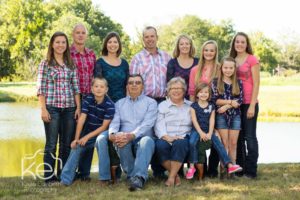
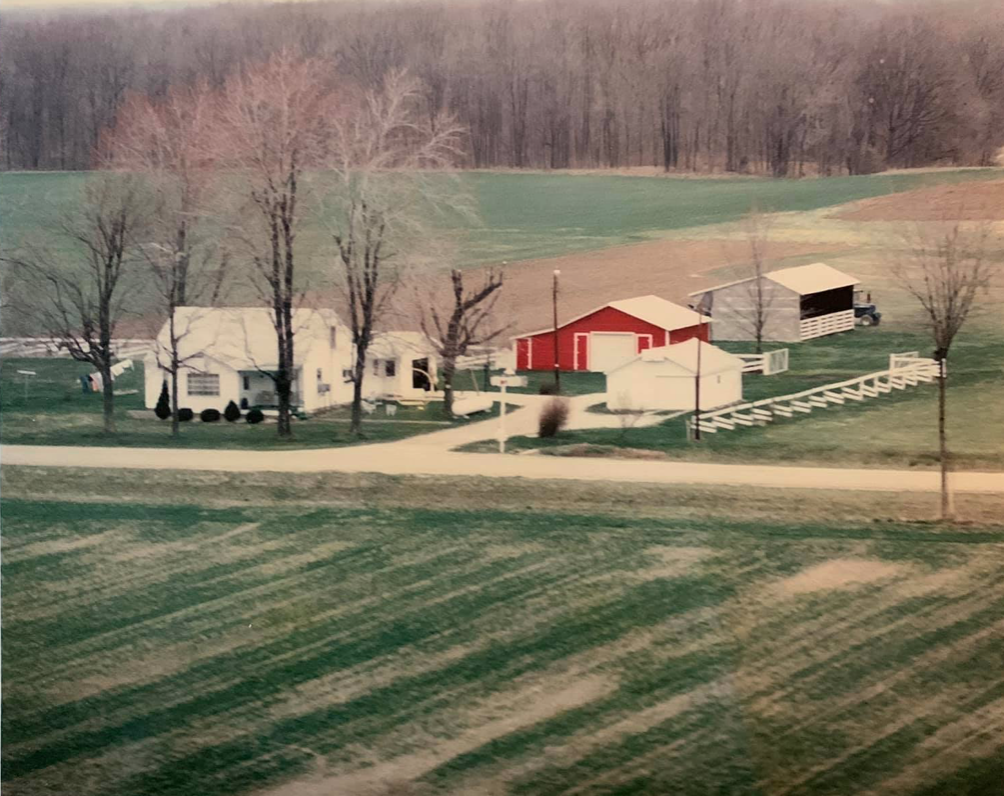
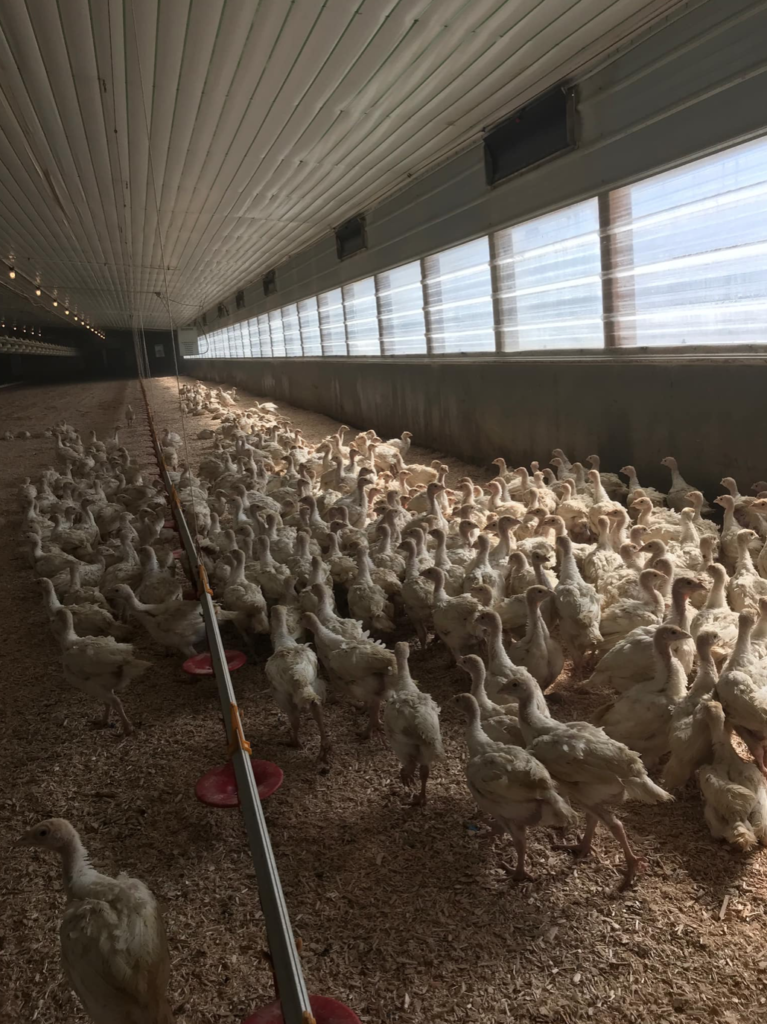
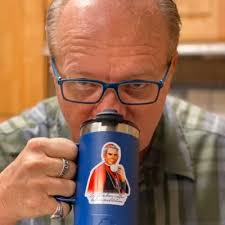

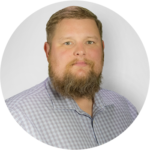
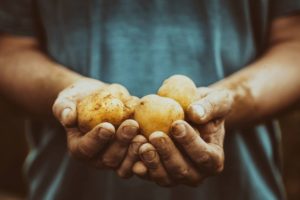
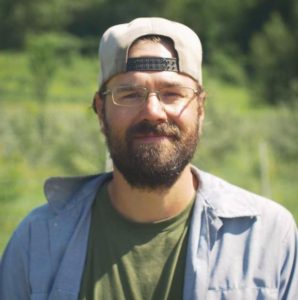
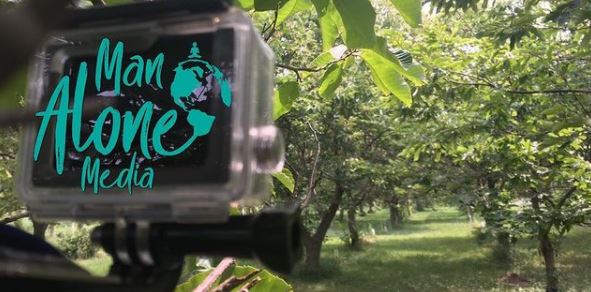
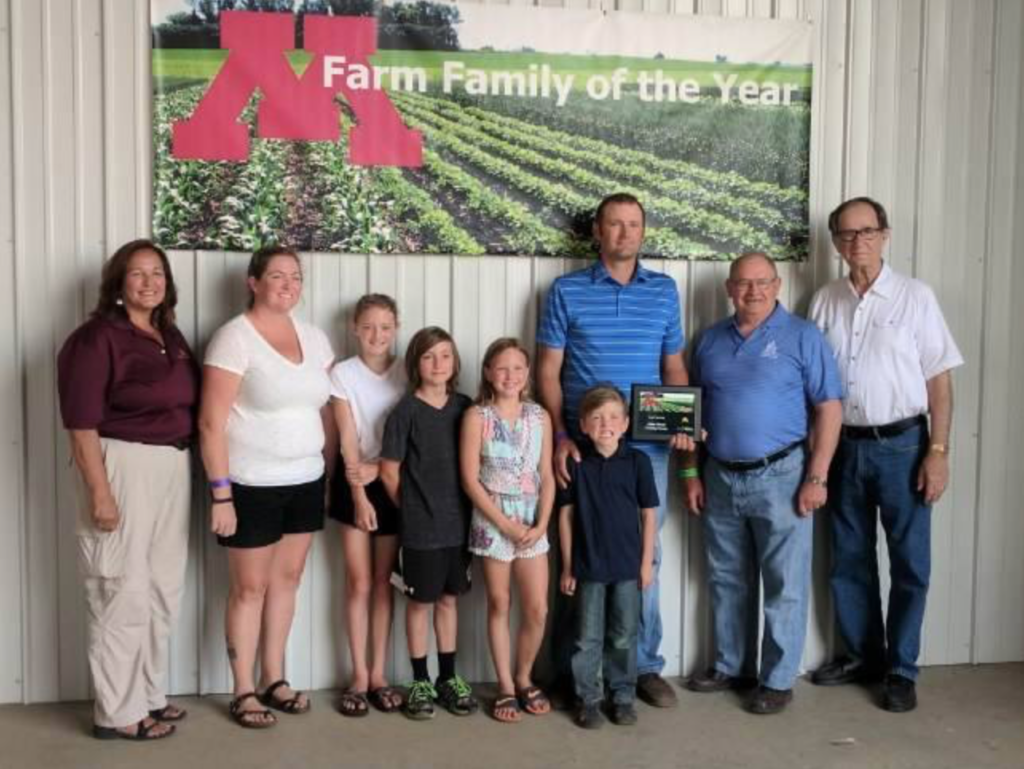
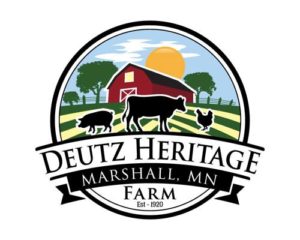
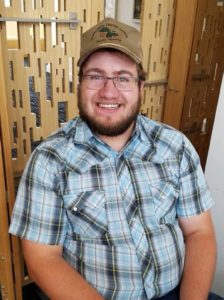
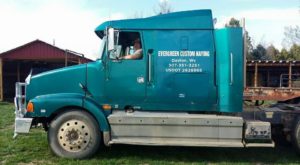
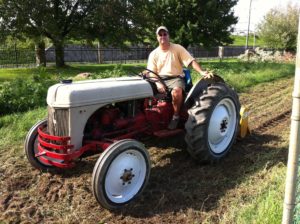

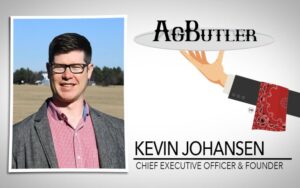
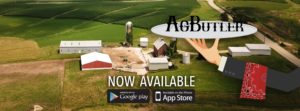
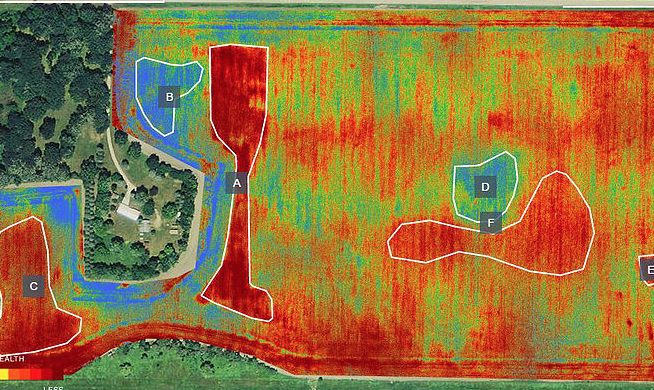
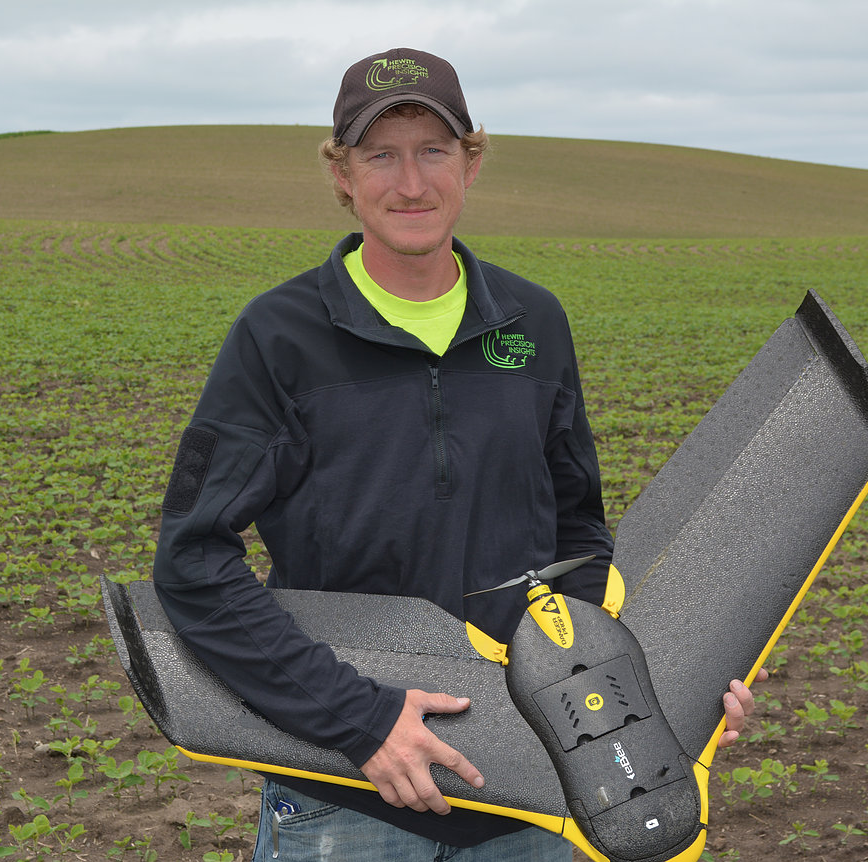
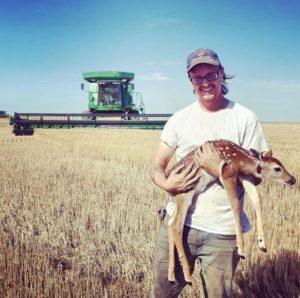
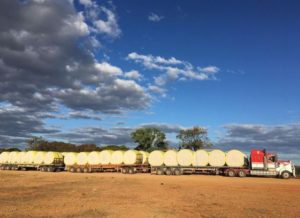
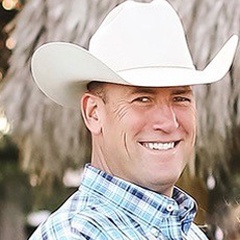
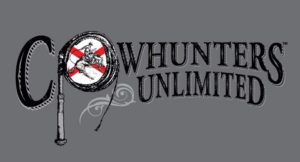
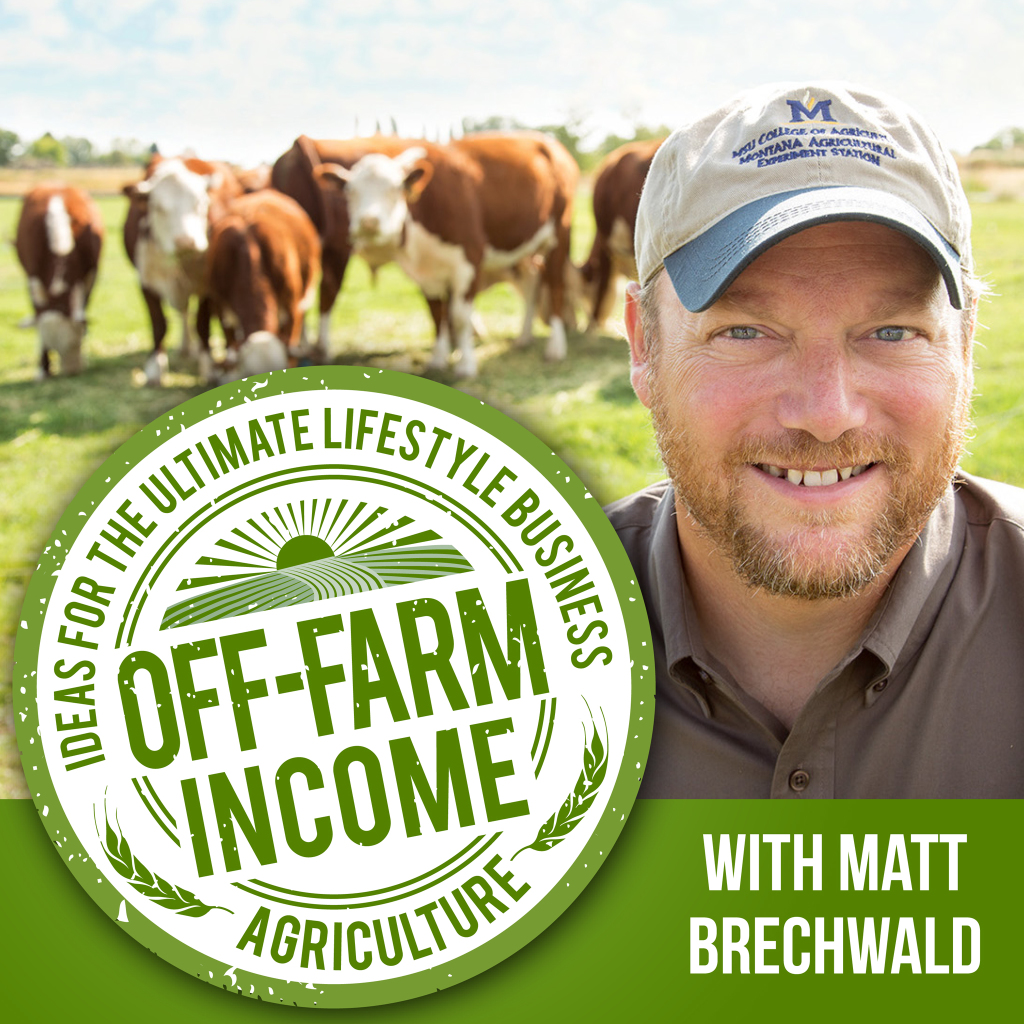
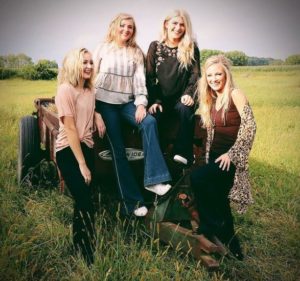
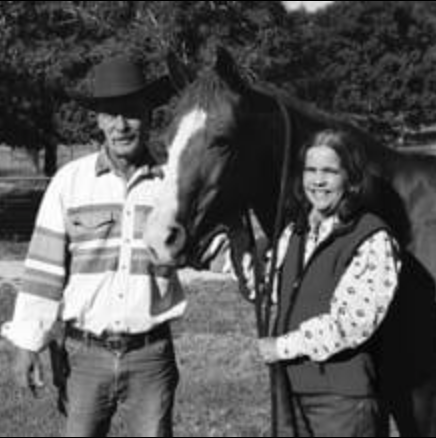
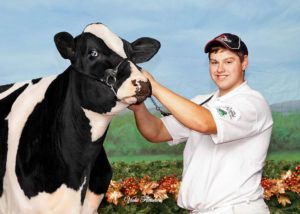
 Kyle started a business called KYVision Sharpening & Repair in 2018. He did this because he wanted to make extra money and because nobody else in Canada was doing this. He had always sharpened his own blades and repaired his own clippers for fitting and showing dairy cattle, and he thought that he could turn this into a profitable business. So, Kyle already had one important skill set to put towards his idea.
Kyle started a business called KYVision Sharpening & Repair in 2018. He did this because he wanted to make extra money and because nobody else in Canada was doing this. He had always sharpened his own blades and repaired his own clippers for fitting and showing dairy cattle, and he thought that he could turn this into a profitable business. So, Kyle already had one important skill set to put towards his idea.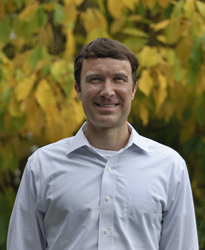
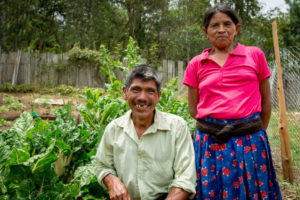
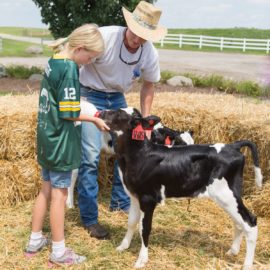 Alex specializes in helping farmers in Central America, and he has traveled to small holder's farms all throughout that region. He has even taken FFA students with him to see who they were impacting with their efforts. He has some amazing stories to share, and he describes people trying to farm in conditions that no American farmer would ever consider.
Alex specializes in helping farmers in Central America, and he has traveled to small holder's farms all throughout that region. He has even taken FFA students with him to see who they were impacting with their efforts. He has some amazing stories to share, and he describes people trying to farm in conditions that no American farmer would ever consider.
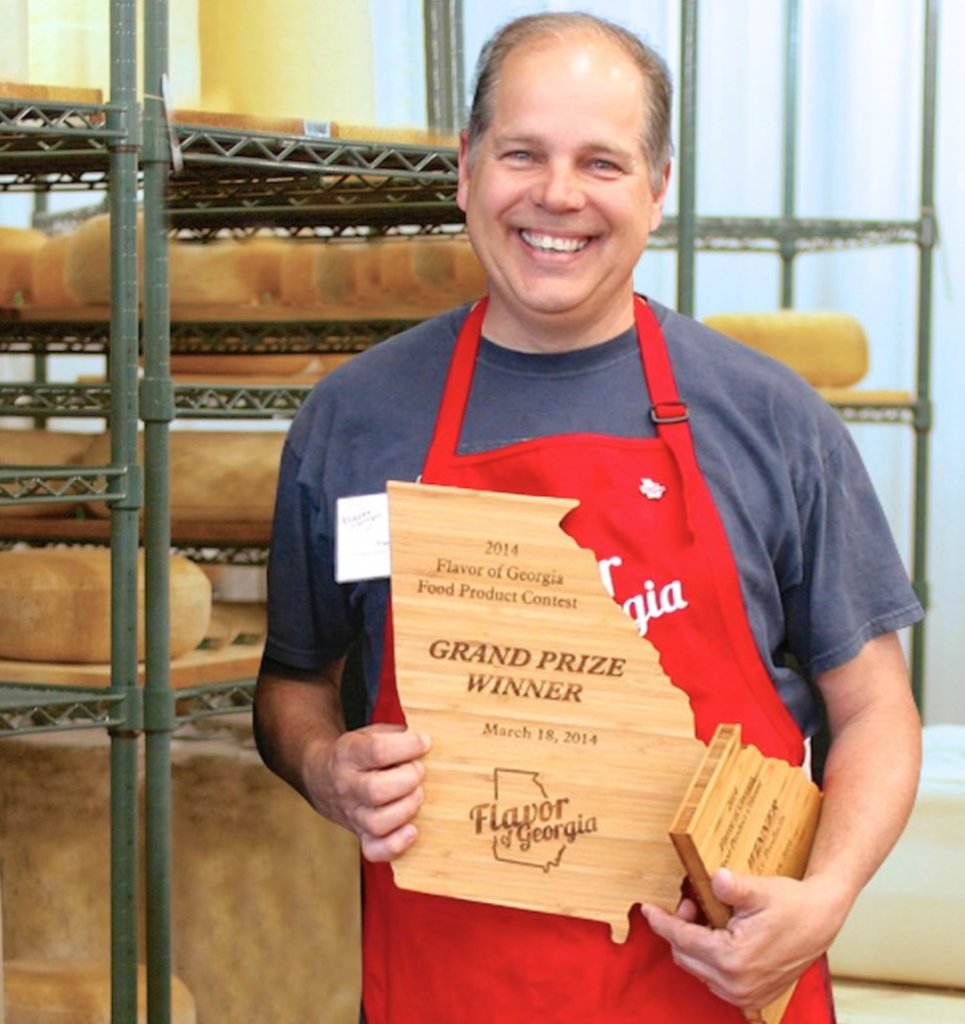
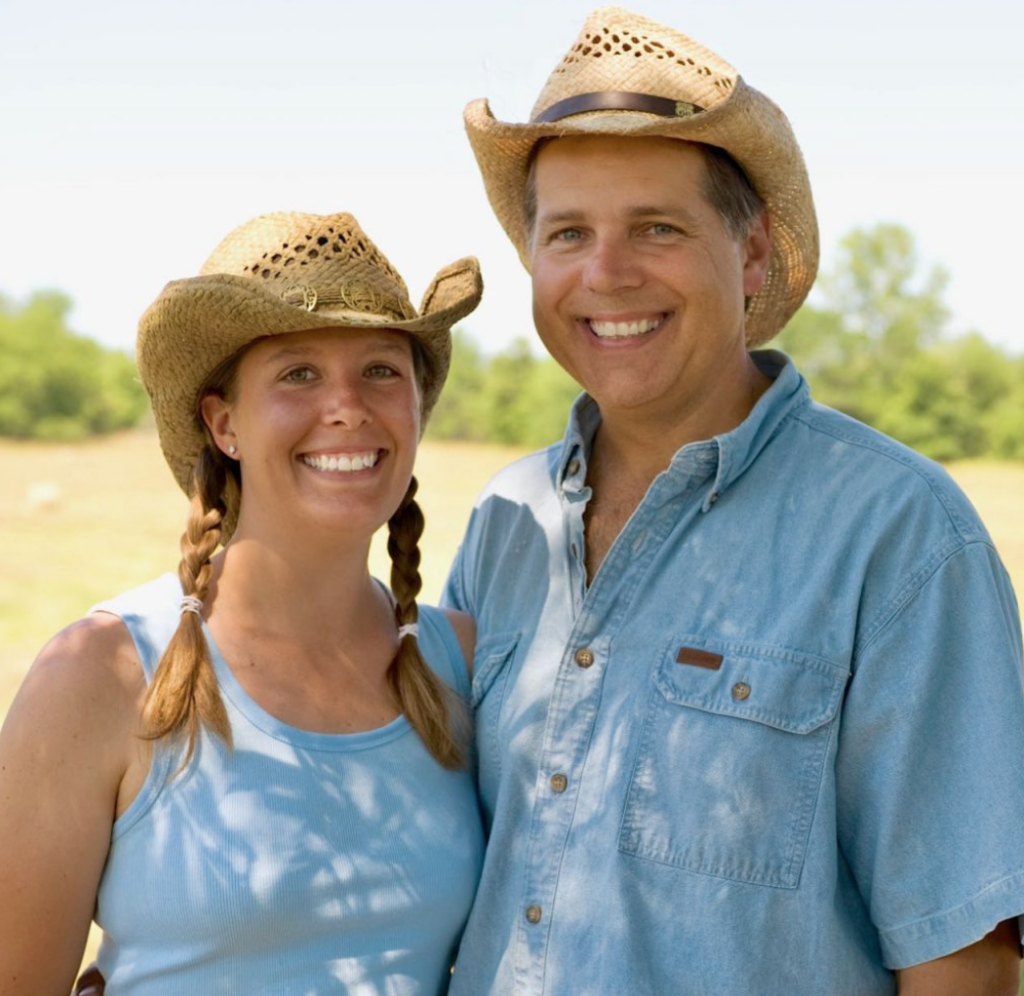
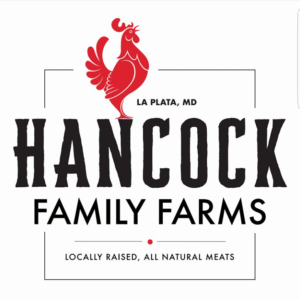
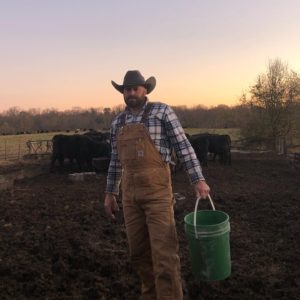 Our guest today, David Hancock, has a recipe for doing just that. No two farms or farmers are alike, and you may have more or fewer challenges than David has had to overcome. But one thing is for certain, he loves farming and needed to figure out a niche to achieve his dream of farming full time. He did that by selling individual cuts of meat.
Our guest today, David Hancock, has a recipe for doing just that. No two farms or farmers are alike, and you may have more or fewer challenges than David has had to overcome. But one thing is for certain, he loves farming and needed to figure out a niche to achieve his dream of farming full time. He did that by selling individual cuts of meat.